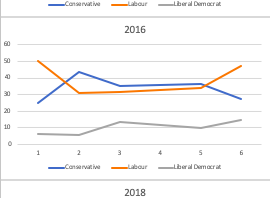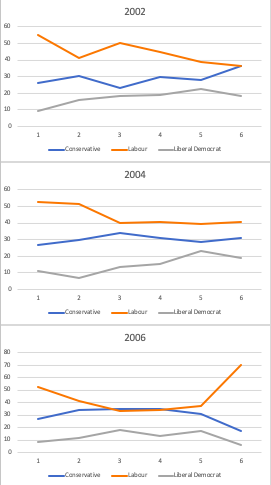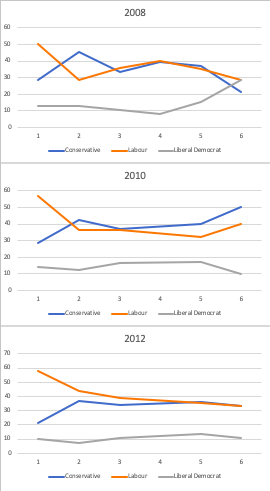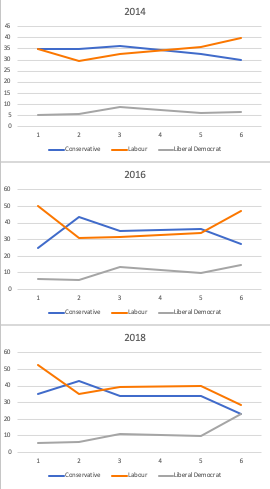I use the word “civic” every day. It is in the title of my college (The Tisch College of Civic Life) and the major that I direct (Civic Studies) and in the names of many topics and fields that I work on, from civic education to civic media.
But what does it mean? In my own mind, “civic” has certain associations and resonances, although I rarely articulate them. During a recent conversation with colleagues, I realized that most don’t hear the same meanings I do. I don’t blame them; there is no agreement about the definition, and the word has been used in many ways. I’ll turn to its history below.
Today, some people hear in the word “civic” a disciplinary intention, an effort to draw a boundary around respectable and approved behaviors (the “civic” ones). Sometimes it is almost synonymous with “civil.” In turn, “civility” sometimes means almost the same as “politeness.” People may use “civic” to identify approved behaviors, or else they may oppose the word as too restrictive and controlling.
Others want to make the word strictly empirical, rather than a value-laden adjective. Then “civic” may refer to a list of activities, from voting to marching in a protest–regardless of the participants’ values and goals. For example, a march would be civic whether the marchers were members of the Southern Christian Leadership Conference or Mussolini’s Brown Shirts. (But if we take this approach, why are certain activities on the list, and others not?)
I’d like to make space for a more inspiring use of the word that has deep historical roots. My dictionary-style definition would go something like this:
Civ’-ic. adj. 1. Of or pertaining to a group of relatively equal self-governing people. Hence, 2. virtues, values, or skills for self-government, e.g., civic courage, civic knowledge. 3. Assets belonging to or created by self-governing people, e.g., a civic forum. 4. Activities or other phenomena related to self-government, e.g., civic engagement, civic dialogue, civic education.
By a “self-governing people,” I mean to include all the citizens of any republican country, but not only such groups. A town or city within a larger country can have self-governing power. So can a voluntary association or even some kinds of firms; and they may be self-governing even if the states in which they operate are authoritarian. Thus, institutions of various types and scales can be civic.
The history of a word helps explain how it has accrued its diverse definitions and resonances.
The English word “civic” derives from Latin civicus, which primarily refers to relations among fellow members of the same city. In turn, the classical city (the polis or urbs) was self-governing: not usually egalitarian, but quasi-autonomous and governed by a deliberative assembly. So civicus always had echoes of a deliberative forum.
“Civic” enters the Romance languages to translate Latin texts. According to the Oxford English Dictionary (OED), the very first use in English (1542) refers specifically to the ancient Roman oak-leaf-and-acorn garland awarded to men who had saved fellow citizens in war.
A kind of garland was its only meaning in English until the time of the Commonwealth, when Parliament overthrew the monarch and declared a republic. During this period, the Company of Mercers of the free city of London put on a pageant entitled “Charity Triumphant,” parading a female allegorical figure through the streets of the city. Edmund Gayton (“considered a hack writer” and then imprisoned for debt), published a long descriptive and celebratory poem about this pageant, including the sentence, “I cannot here set forth the reason of the late extinguishing these Civick Lights, and suppressing the Genius of our Metropolis, which for these Planetary Pageants and Pretorian Pomps was as famous and renouned in forraign Nations, as for their faith, wealth, and valour.”
Gayton probably deserves his obscurity, but he does seem to coined the word “Civick” in one of its important senses: “of, belonging to, or relating to a citizen or citizens; of or relating to citizenship or to the rights, duties, etc., of the citizen; befitting a citizen” (OED).
In his time, the English were enthusiastic about self-governance and the ideal of a commonwealth, itself a translation for “republic,” meaning the good that a people makes and owns together. Of course, this was also the period of Puritan self-governance in New England and the invention of important activities that we now naturally call “civic”: town meetings, local elections, and civic education, which Massachusetts had required in 1642.
Just one year later, in 1656, Blount’s dictionary defines “Civick” as “pertaining to the city.” Since then, one of its meanings has always been akin to “urban,” as in “Civic Center” for the name of a city’s convention hall. But I think that “the city” had a different original meaning. Now we think of large, dense municipalities. Originally, an urbs or polis was any autonomous community. For instance, the whole Massachusetts Bay Colony was meant to be a City on the Hill.
By 1747, “civic” was used to modify “virtue.” By the end of that century, the word “civique” (with similar associations) had become influential in France. According to the Constitution of 1791: “The Civic Oath (le serment civique) is: ‘I swear to be faithful to the Nation to the law and to the king and to preserve with all my power the Royal Constitution, decreed by the National Constituent Assembly for the Years 1789, 1790 and 1791.‘”
Across the Channel, Edmund Burke denounced the French revolutionaries who would overthrow traditional values and institutions, including religion. He added:
These enthusiasts do not scruple to avow their opinion, that a state can subsist without any religion better than with one; and that they are able to supply the place of any good which may be in it, by a project of their own—namely, by a sort of education they have imagined, founded in a knowledge of the physical wants of men; progressively carried to an enlightened self-interest, which, when well understood, they tell us will identify with an interest more enlarged and public. The scheme of this education has been long known. Of late they distinguish it (as they have got an entire new nomenclature of technical terms) by the name of a Civic Education.
Burke, Reflections on the Revolution in France
According to the OED, this was first use of the word “civic education” in English. It referred to a radically republican, secular, and patriotic project to which the author, Burke, was hostile. To bring civic education to England would be “the most dangerous shock that the state ever received.”
Thus the first English use of the phrase “civic education” was a denunciation. Yet the ideals that animated the French Revolution–self-governance, commitment to the common good–have deep resonances in England and the USA.
By the way, the word “civics” is a noun, in my opinion: short for “civic education.” It is often used adjectively in the phrase “civics education,” but I think that’s a grammatical mistake. In any case, “civics” is strictly American, and its first attested use is in the Boston Daily Advertiser in 1885: “Henry Randall Waite, Ph.D., president of the American Institute of Civics, was the next speaker… The use of the word civics for political science was explained.”
In short, “civic” has many meanings, but some of the oldest and most recurrent ones refer to a republican ideal: concrete communities of people should decide and act together and develop the rules, values, resources, and habits necessary to succeed.




